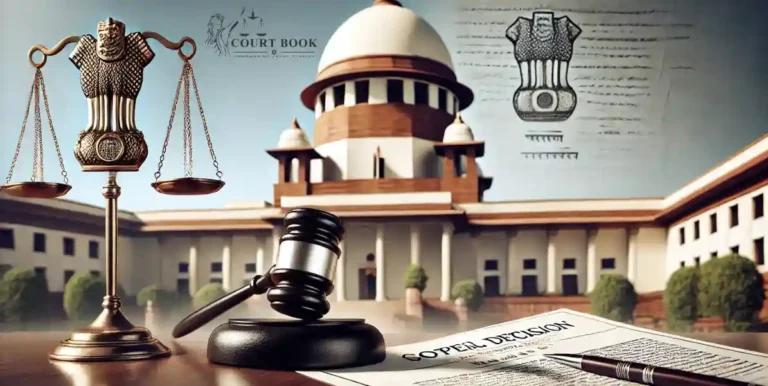The Supreme Court of India, in a significant ruling on February 28, 2025, stated that High Courts should not routinely stay discharge orders passed by trial courts in criminal cases. The Court emphasized that such stays should only be granted under "exceptional circumstances."
"Stay on discharge should never be granted unless circumstances are exceptional," the Supreme Court stated.
The ruling was delivered by a bench comprising Justice Abhay S. Oka and Justice Ujjal Bhuyan while hearing an appeal filed by Sikh leader Sudershan Singh Wazir. The plea challenged the Delhi High Court's order, which had stayed his discharge in a 2021 murder case and directed him to surrender.
Background of the Case
The case pertains to the 2021 murder of former National Conference MLC Trilochan Singh Wazir. The accused included Sudershan Singh Wazir, a former President of the Jammu and Kashmir State Gurdwara Parbandhak Board, along with Balbir Singh, Harpreet Singh Khalsa, and Rajinder Chaudhary. On October 26, 2023, the trial court discharged Wazir and his co-accused while retaining charges against Harmeet Singh.
Read Also:- Ensuring a Sensitive Work Environment for Women Judicial Officers: Supreme Court's Judgment
Following the discharge, the prosecution challenged the order in the Delhi High Court through revision proceedings. On November 4, 2024, the High Court stayed the trial court's discharge order and directed Wazir to surrender. The High Court reasoned that Wazir’s release had become invalid due to the stay and stated that without securing his custody, the stay order would be ineffective. However, the Court clarified that Wazir could still apply for bail, which would be considered on its own merits.
On November 11, 2024, the Supreme Court took cognizance of Wazir’s plea challenging the High Court's order. The Court stayed the direction for Wazir to surrender and halted the trial proceedings against him until further notice.
Justice Abhay S. Oka questioned the legality of staying a discharge order, stating:
"How can an order of discharge be stayed? Staying an order of discharge is completely unheard of."
During the January 28, 2025 hearing, the Supreme Court raised concerns about the implications of the High Court’s decision, highlighting that the stay allowed the trial to proceed even though the discharge order had not been overturned. Justice Oka termed the High Court’s ruling as “absurd,” emphasizing that an ex parte stay had resulted in Wazir facing trial despite his discharge.
Read Also:- Supreme Court Holds Authorities Accountable for Manual Scavenging Deaths: Urgent Explanations Demanded
Additional Solicitor General Rajkumar Bhaskar Thakare defended the High Court’s decision, stating that the court exercised its power under Sections 397 and 401 of the Criminal Procedure Code (CrPC). He argued that the High Court found a prima facie case indicating that the discharge order suffered from "non-application of mind" and amounted to a "mini-trial."
The victim’s counsel supported the High Court’s decision, arguing that the stay did not necessarily mean that Wazir’s trial would proceed. The counsel contended that the discharge order was "absolutely incorrect ex facie," justifying the stay while allowing Wazir to apply for bail.
However, Justice Oka expressed skepticism about the procedural complexities involved in seeking bail under such circumstances, stating that it could lead to unnecessary legal delays.
The Supreme Court also raised concerns regarding due process under Article 21 of the Constitution, questioning how the release of an accused following a discharge order could be considered invalid without the discharge order itself being set aside.
"The right to liberty is fundamental, and any procedural irregularity must be weighed against the principles of justice," the Court noted.
Case No.: Crl.A. No. 536-537/2025
Case Title: Sudershan Singh Wazir v. State (NCT of Delhi) and Ors.















